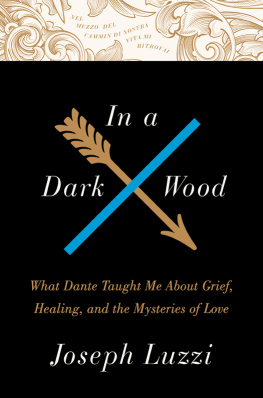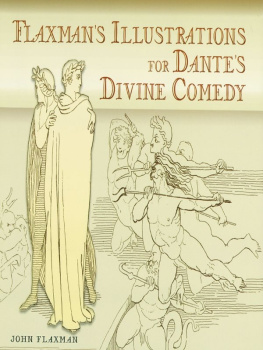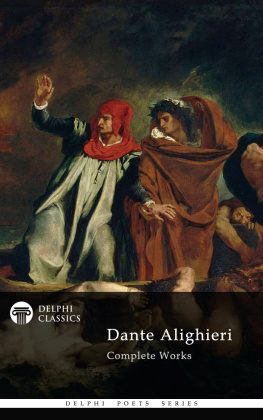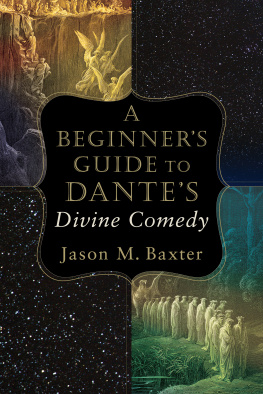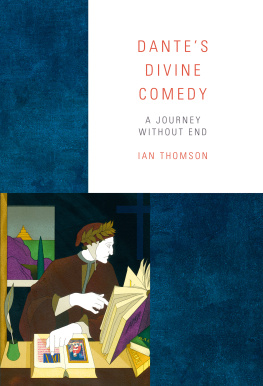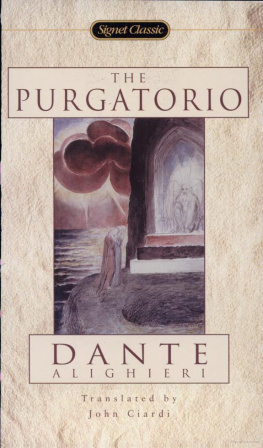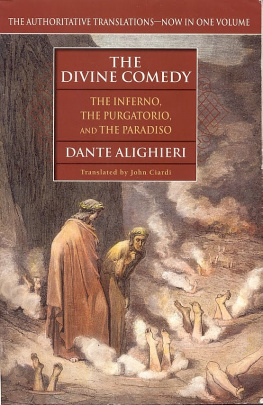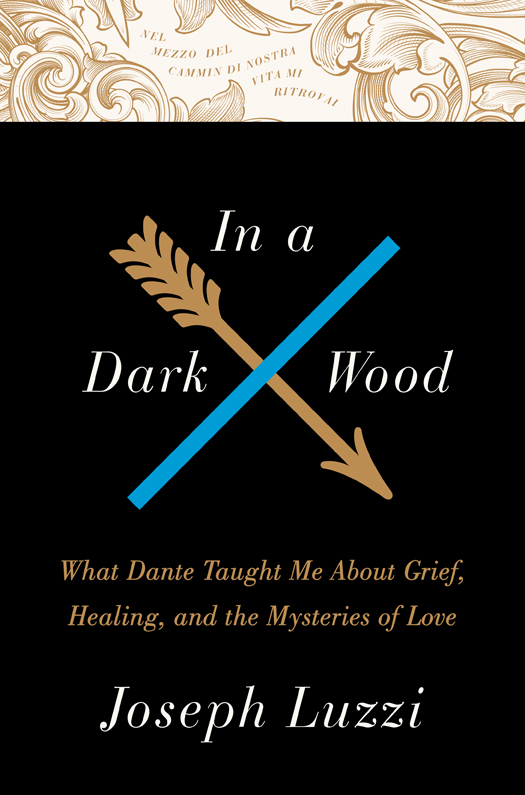For Isabel
lamor che move il sole e laltre stelle
Every grief story is a love story.
Contents
Guide
Cover design by Robin Bilardello
Nel mezzo del cammin di nostra vita, mi ritrovai per una selva oscura.
I n the middle of our lifes journey, I found myself in a dark wood.
So begins one of the most celebrated and challenging poems ever written, Dantes Divine Comedy, a fourteen-thousand-line epic about the souls journey through the afterlife. The tension between the pronouns says it all: although the I belongs to Dante, who died in 1321, his journey is also part of our life. We will all find ourselves in a dark wood one day, the lines suggest.
For me that day came eight years ago, on November 29, 2007, a morning just like any other. I left my home in upstate New York at eight thirty a.m. and drove to nearby Bard College, where I am a professor of Italian. It was cold and wet, the air barely creased by the gray light. After my first class ended, I walked to my office to gather materials and then made my way to a ten thirty a.m. class.
I was joking with my students as we all settled in, when I noticed something unusual out of the corner of my eye: there was a security guard standing at the door.
Look, theyre coming to arrest me, I said, laughing. But the beefy security guard was not smiling.
Are you Professor Luzzi?
Ive done nothing wrong, was my first thought.
Yeswhy?
Please come with me.
I edged outside the classroom and saw the associate dean and vice president of the college racing up the stairwell. I started running too, down the stairs and out of the building. There was a security van waiting for me.
Joe, your wifes had a terrible accident.
The words came from somewhere close, but they sounded muffled, as though passing through dimensions. Time and space were bending around me.
I was entering the dark wood.
EARLIER THAT MORNING AT NINE fifteen, my wife, Katherine Lynne Mester, pulled out of a gas station and into oncoming traffic, just eight miles from where I sat proctoring an exam in Italian. As close as she was, I didnt hear the crunching blow of the oncoming van into the soft aluminum pocket of her drivers side door, nor did I see the careening skid of her jeep as it swerved across the country highway and finally came to a full stop twenty feet from impact on the other side of the road. In the monastery-like silence of my classroom, I was unaware of the surging convoy of emergency response vehicles that were barreling up Route 9G, ready to rescue my wife from the tangle of metal and speed her to Poughkeepsies Saint Francis Hospital a half hour away.
These emergency responders were not just carrying my wife: Katherine was eight and a half months pregnant with our first child. Soon after the security guard had appeared at my ten thirty class, a medical team performed an emergency cesarean on an unconscious Katherine, delivering our daughter Isabel, who was limp, pale, had no respiratory effort, and whose heart rate was inaudible. The doctors applied pressure ventilation by bag and maskbut one minute into her new life Isabels heart rate was still slow and she had to be intubated. Slowly her heart rate rallied. Within ten minutes she was taking her first voluntary, spontaneous breaths.
Forty-five minutes after Isabel was born, Katherine died.
I had left the house at eight thirty; by noon, I was a widower and a father.
A WEEK LATER, I FOUND myself standing in the cold rain in a cemetery outside of Detroit, watching as my wifes body was returned to the earth close to where she was born. The words for the emotions I had known until thenpain, sadness, sufferingno longer made sense, as a feeling of cosmic, paralyzing sorrow washed over me. My personal loss felt almost beside the point: a young woman who had been vibrant with life was now no more. I could feel part of me going down with Katherines coffin. It was the last communion I would ever have with her, and I have never felt so unbearably connected to the rhythms of the universe. But I was on forbidden ground. Like all other mortals, I would have to return to the planet earth of grief. An hour with the angels is about all we can take.
Days afterward, I went for a walk in the village where Katherine and I had been living, Tivoli, New York. By chance I ran into a neighbor who was also out walking: the chaplain who had officiated at my colleges memorial service for Katherine.
Youre in hell, she said to me.
I immediately thought of Dante, the author I had devoted much of my career to teaching and writing about. After a charmed youth as a leading poet and politician in Florence, Italy, the city where he was born in 1265, Dante Alighieri was sentenced to exile while on a diplomatic mission. In those first years, Dante wandered around the region of Tuscany, desperately seeking to return to his beloved city. He met with fellow exiles, plotted military action, connived with former enemiesanything to get home. But he never set foot in Florence again. His words on the experience would become a mantra to me:
You will leave behind everything you love
most dearly, and this is the arrow
the bow of exile first lets fly.
No other words could capture how I felt during the four years I struggled to find my way out of the dark wood of grief and mourning. And yet it was only because of his exile that Dante was able to write The Divine Comedy, when he accepted once and for all that he would never return to Florence. Before 1302, the year he was expelled, he had been a fine lyric poet and an impressive scholar. But he had yet to find his voice. Only in exile did he gain the heavens-eye view of human life, detached from all earthly allegiances, that enabled him to speak of the soul.
At the beginning of The Divine Comedy, as Dante finds himself lost in the selva oscurathe dark woodhe sees a shade in the distance. Its his favorite writer, the Roman poet Virgil, author of The Aeneid and a pagan adrift in the Christian afterworld. By way of greeting, Dante tells Virgil that it was his lungo studio e grande amorehis long study and great lovethat led him to the ancient poet. Virgil becomes Dantes teacher on ethics, willpower, and the cyclical nature of human mortality, illustrated by his metaphor of the souls in hell bunched up like fallen leaves. Virgil is his guide through the dark wood, just as The Aeneid gave Dante the tools he needed to curb his grief over losing Florence, whose splendor would haunt him as he wandered through Italy looking for a home during the last twenty years of his life.
Thats beautys terrible calculus, I would come to learn: its hold over you becomes stronger after youve lost it.
I had met Katherine four years earlier at an art opening in Brooklyn, her tall, elegant beauty standing out amid the slouching hipsters in T-shirts and flannel. She was wearing a form-fitting dress and stood with perfectly erect posture as she drank her champagne and talked with a friend. I made a beeline for her and mustered up the courage to introduce myself. She was kind enough not to sneer at my opening line.
Nice shoes, I said, pointing to her spectacular leopard print heels.
They are, arent they? she answered smiling.
And with these few words my life began to flow in a new direction, one of brief but powerful happiness, the kind that changes you. The crowd buzzing around us seemed to disappear as Katherine told me about her family in suburban Detroit, the father she adored who was a federal judge and a pillar of their community. She laughed as she described her mother, a homemaker who had been raised on a cherry farm and now rankled the family with her unfiltered outbursts on subjects ranging from Americas welfare system to children who pursue artistic careers. I learned about Katherines fancy prep school that the family could hardly afford and that she could barely stay afloat in, and her years of fruitless auditions and demos: My mom says stop doing freebies, she joked. We walked through the warm November night, first in a pack, then just the two of us. I told her I was a professor, and she repeated the word slowly, looking me in the eye. I dont know whether she was impressed or just glad to meet somebody from a staid world far from her own. By two in the morning, we were in a cab that would drop me off in Park Slope and then take her to the Upper West Side. But there was a terrible thud, and the car stopped stock-still in the middle of a Brooklyn thoroughfare.

